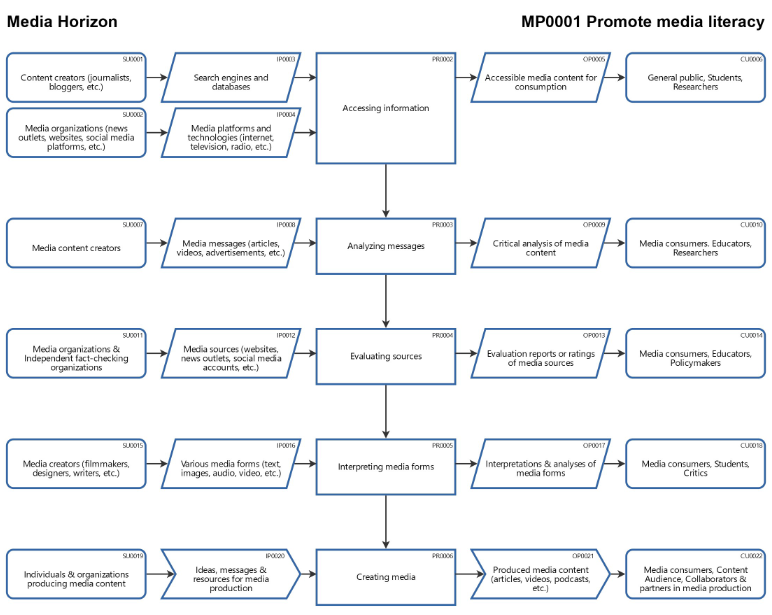Media literacy & the impact of AI

AI both poses challenges and offers opportunities for media literacy. Educating individuals to navigate and critically engage with AI-mediated media environments is essential for fostering informed and responsible media consumption and production.
- Filtering and Recommendation Algorithms: AI-powered algorithms determine what content users see on social media platforms, search engines and news websites. Understanding how these algorithms work is crucial for media literacy, as it affects the information users are exposed to and can influence their perspectives and beliefs.
- Automated Content Generation: AI can generate text, images, and videos, leading to an increase in the volume of content available online. This abundance of content requires media consumers to be more discerning and critical in evaluating the credibility and authenticity of information.
- Deepfakes and Synthetic Media: AI enables the creation of sophisticated deepfake videos and other forms of synthetic media that can be used to manipulate information and deceive audiences. Media literacy education needs to address the challenge of identifying and debunking deepfakes to prevent their spread and mitigate their impact on public discourse.
- Fact-Checking and Verification Tools: AI tools are developed to aid in fact-checking and verifying the accuracy of information online. These tools can assist media consumers in discerning truth from misinformation, but users also need to understand the limitations and potential biases of these technologies.
- Personalized Content and Echo Chambers: AI-driven personalization algorithms tailor content to individual preferences, potentially creating echo chambers where users are only exposed to information that aligns with their existing beliefs. Media literacy education should emphasize the importance of seeking out diverse perspectives and critically evaluating sources to avoid echo chamber effects.
- AI-Powered Content Analysis: AI can analyze large datasets of media content to identify trends, biases, and patterns. Media literacy educators can leverage these insights to teach students how media messages are constructed and disseminated, fostering a deeper understanding of media influence and manipulation techniques.
Using the following link you can access this sandbox process model in the ProcessHorizon web app and adapt it to your needs (easy customizing) and export or print the automagically created visual process map as a PDF document or share it with your peers: https://app.processhorizon.com/enterprises/yWTKLDt7ma8zZAumahuSPQfk/frontend

